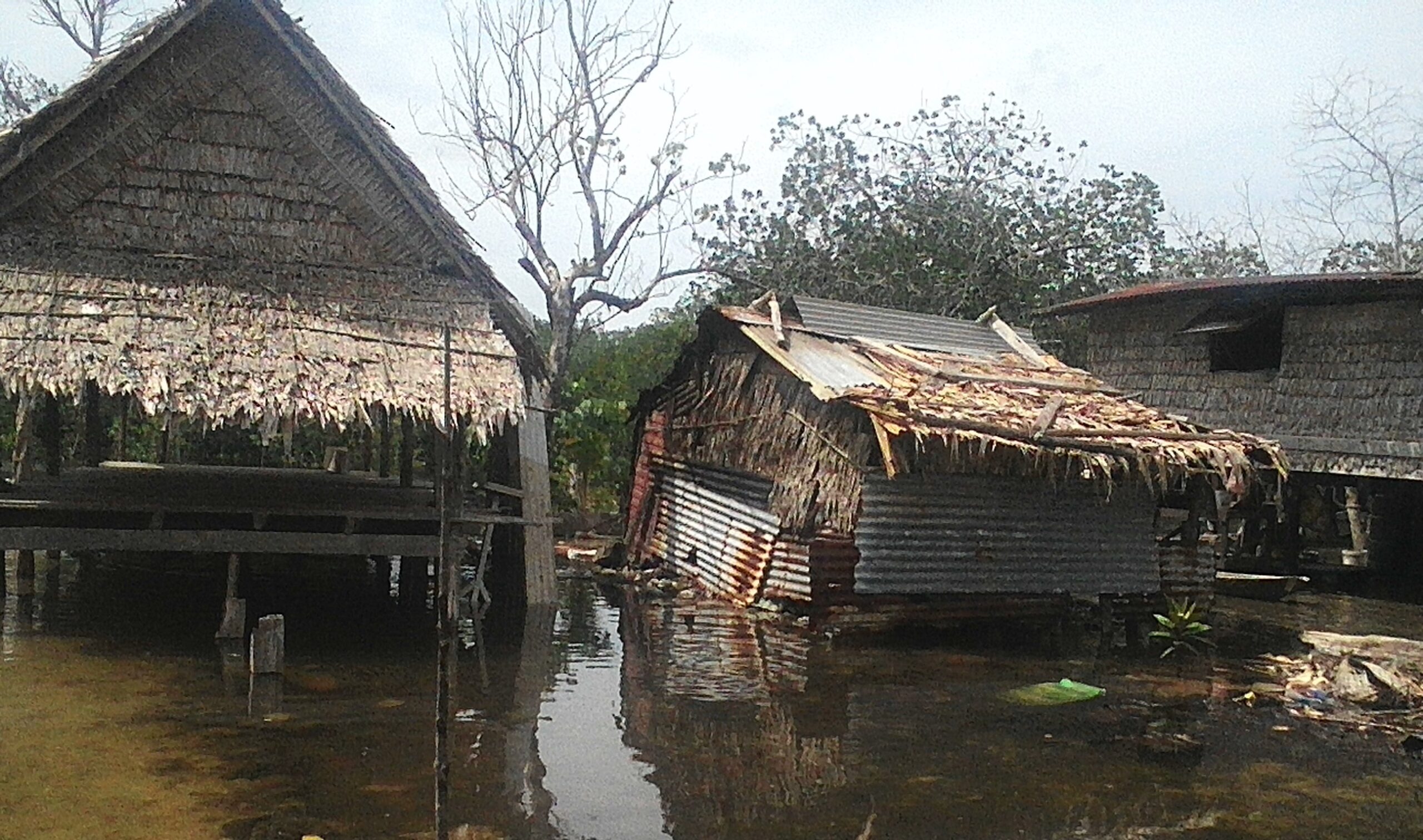BY KHAMA LINCOLN in Gizo
SITTING ON his old hammock contemplating on the best ideas to rescue his community from the obvious impact of climate change, as the ocean extends it’s reach under his thatched home, 60 plus year old John Maeta welcomes another year with the ongoing challenge.
He said, the term of his leadership as chairman for Fishery village in Gizo Island end this week, but his plans and concerns for the community’s wellbeing remains.
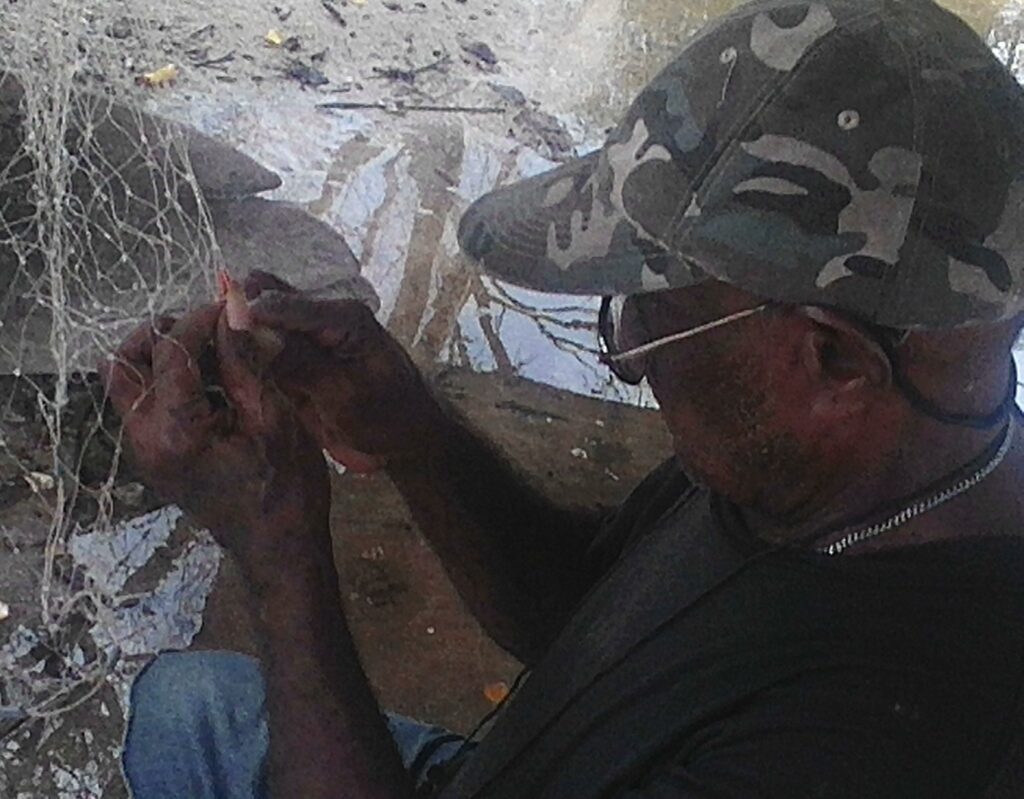
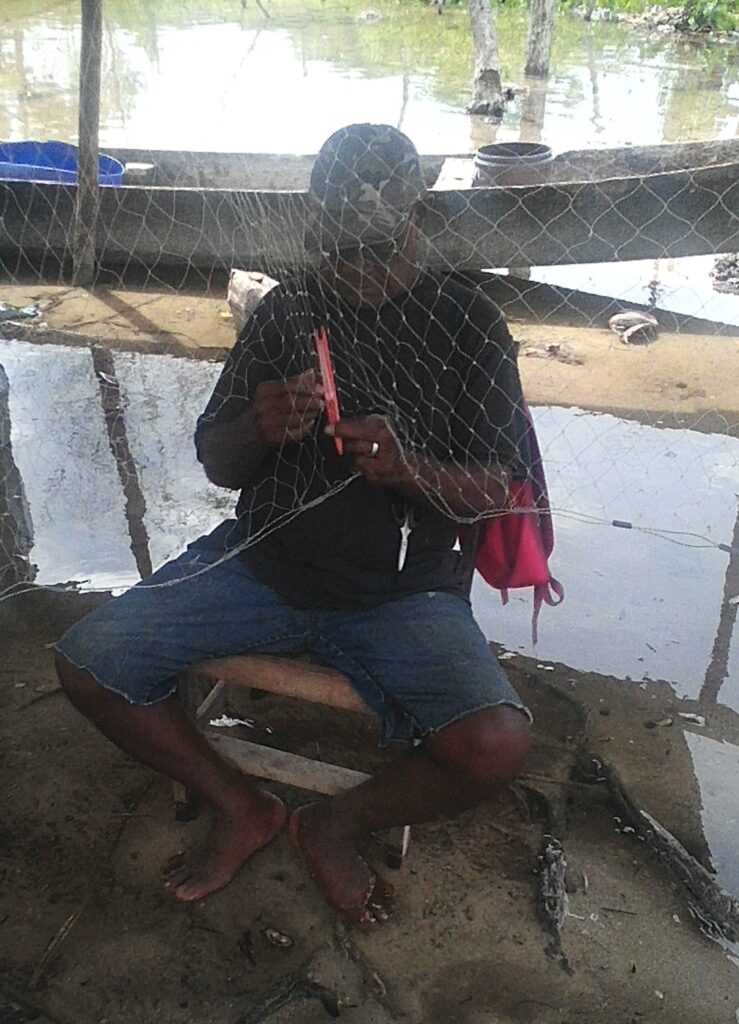
The concerned elder, was pointing to the old artificial breakwater and said, “where the waves break was the seawall, sea covers it since December.”
He said, seawater flows in and stays for an interval of five to six days before he can notice low tide at the seafront area.
“Water enters into my kitchen and all the firewood floats out,” the old fisherman said.
“The saltwater has now spoiled the soil and our garden. “Where else we will go? All the land blocks in the area behind us are occupied,” he said.
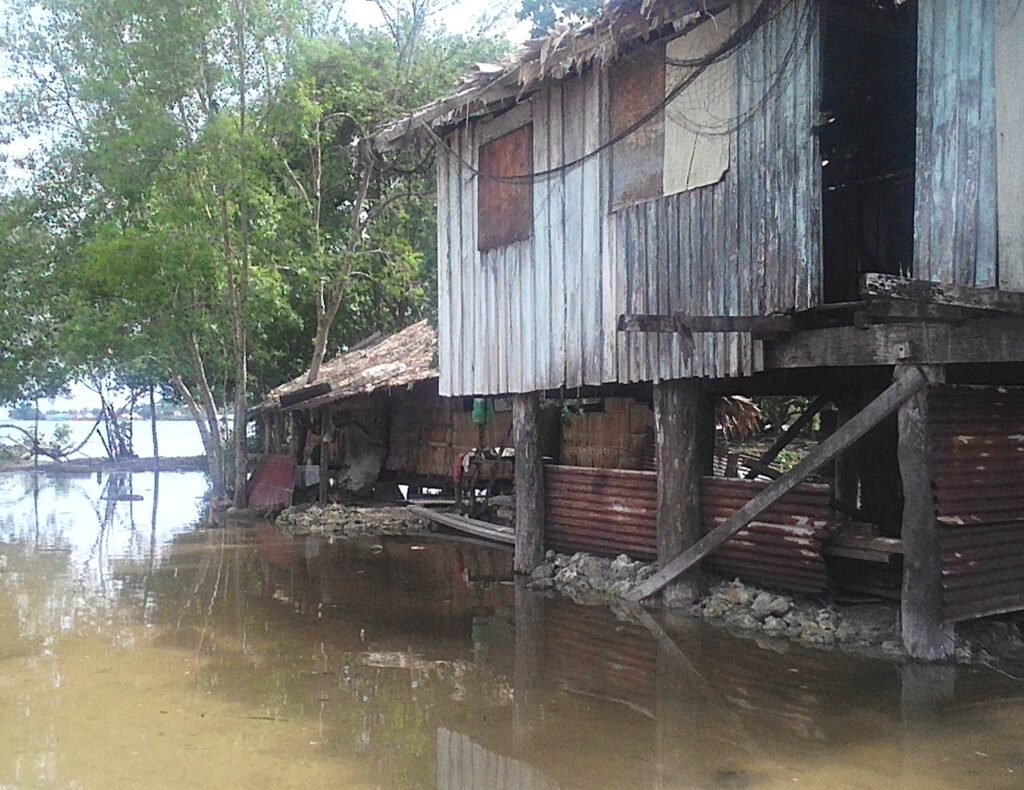
“Our plan is to build up the seawall, but we need money to hire people to help us dive into the sea to pick stones and canoes to carry the stones.” He stressed.
“We will look for places that are free, some places are not allowed to pick stones from.” He continued.
Maeta said, another pressing issue in community is the need of good water supply. He said, if the people choose him to continue leading the community, he will work on the water supply need of his people.
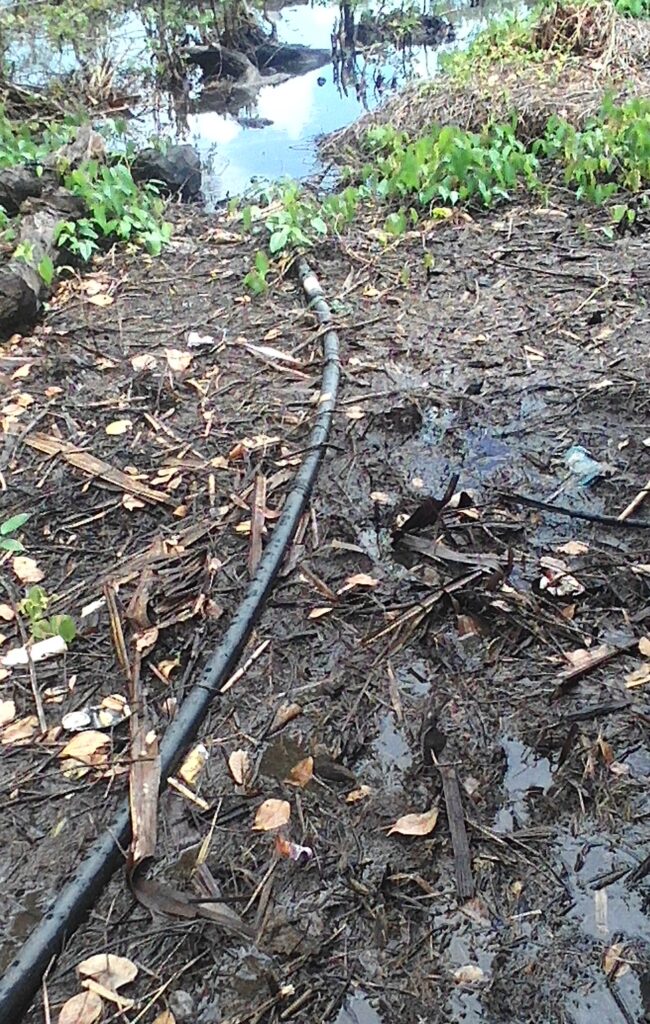
Maeta’s Niece, Janet Fugui a member of Fishery Anglican Church Committee said, that people also want to move out further from the shoreline.
“But the mainland belongs to the government, she said, we don’t know where to go, so we have to raise the level of the area.”

Another resident living in the improvised fishing settlement for 20 years, 52 years old, Dick Bae recalled that before the 2007 Tsunami he lived further out in the shoreline which is now submerged.
He said, he moved to his present location after the Tsunami, which was an unoccupied swampy area during when he moved there.
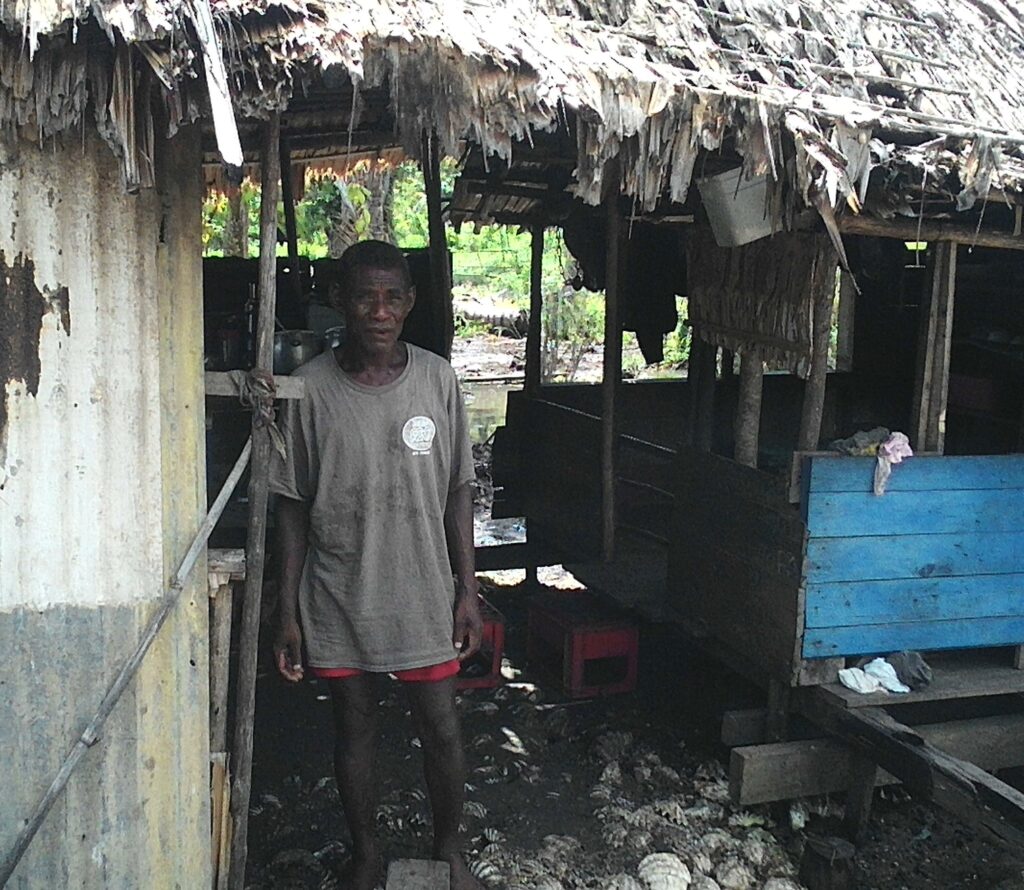
“This place was full of bush and mud, he said. I brush the bush, dig the drain and did the maintenance.”
“Now the sea have reached us again, water flows into my kitchen and my garden. Potato and bananas will not grow well because of salt.” He stressed.
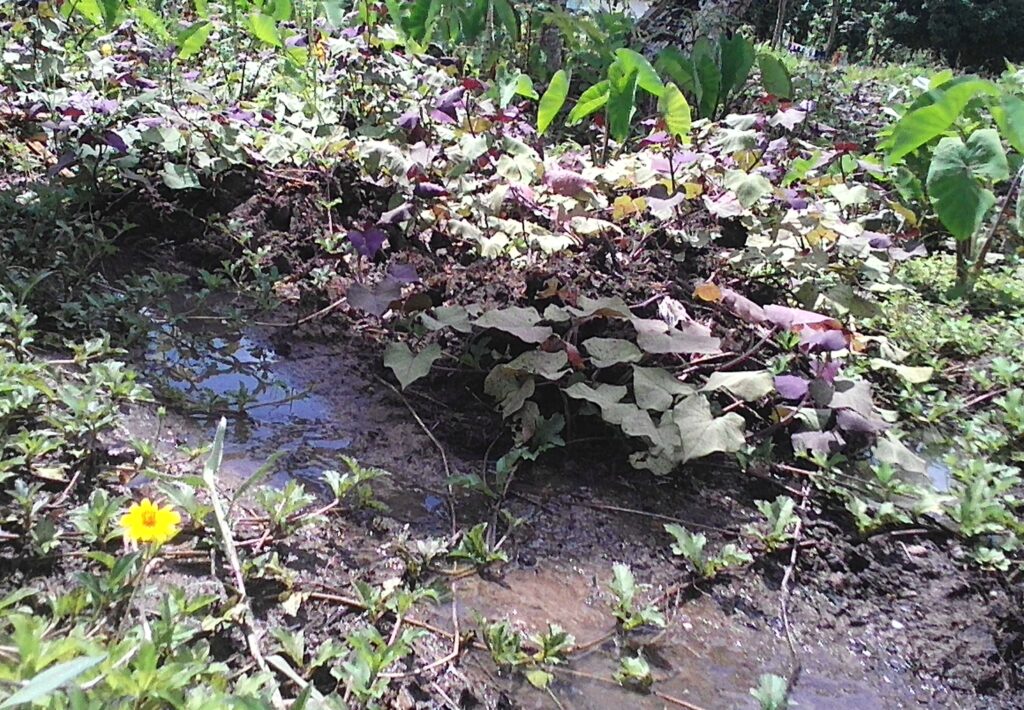
“I don’t know where else to go,” he said, “Behind, at the top, people already own those places.”
“I voted for the member (member of Parliament), they gave us forms and we filled up the forms. But we’re still waiting for support.”
The fisherman sells fish and shells at the market to earn income, and from his earnings he bought sago palm leaves from friends, for his thatched houses.
“If only the member (MP) could support me with roofing Irons.” He said.
Bae, who is originally from Lau in the Malaita province is not new to adapting in coastline environment.
He turned a swampy area full of mud into a home, with the use of shells called “Kiki” in his dialect, to compact the sludge ground floor inside his kitchen and outside.
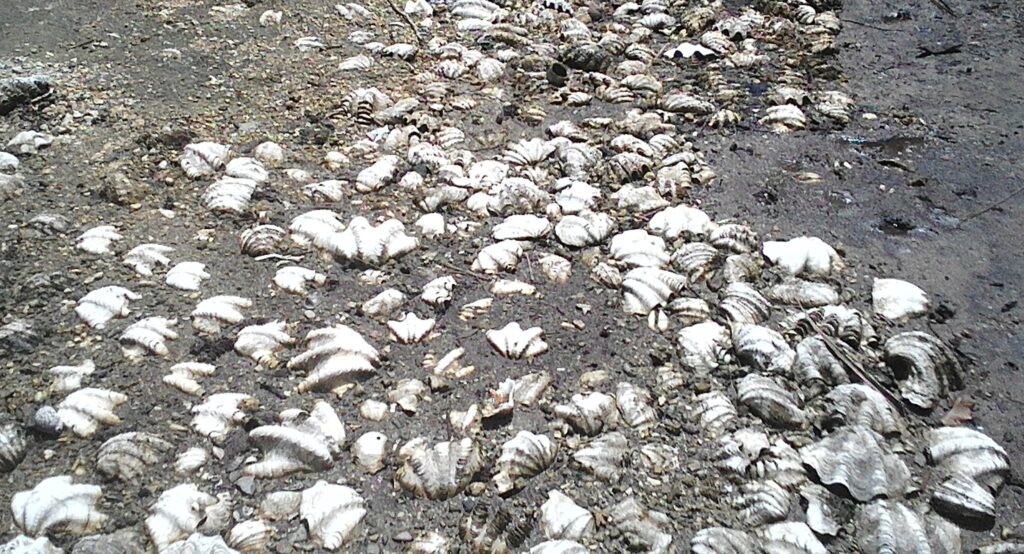
Solomon Islands is one of the vulnerable countries having very limited financial capacity to fight against climate change.
The Solomon Islands National Meteorological Services in reference to sea level rise has stated in addition to the effects of climate change impacts the country is facing, the country will expect more of these events this wet season because of the La Nina period.
The weather office in its earlier statements explained that trade winds push more warm water on our side of the pacific and so sea level is expected to be higher than average.

